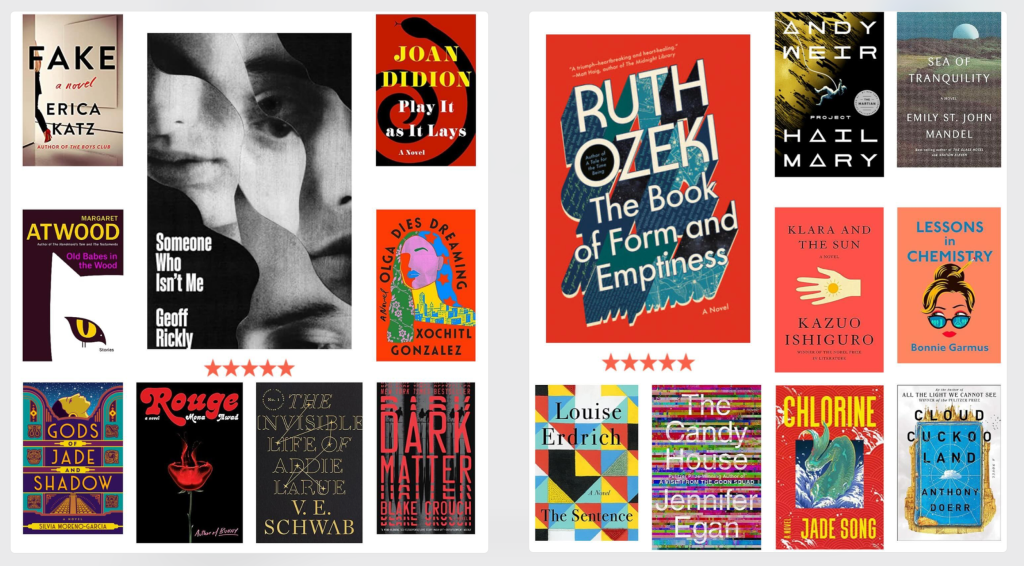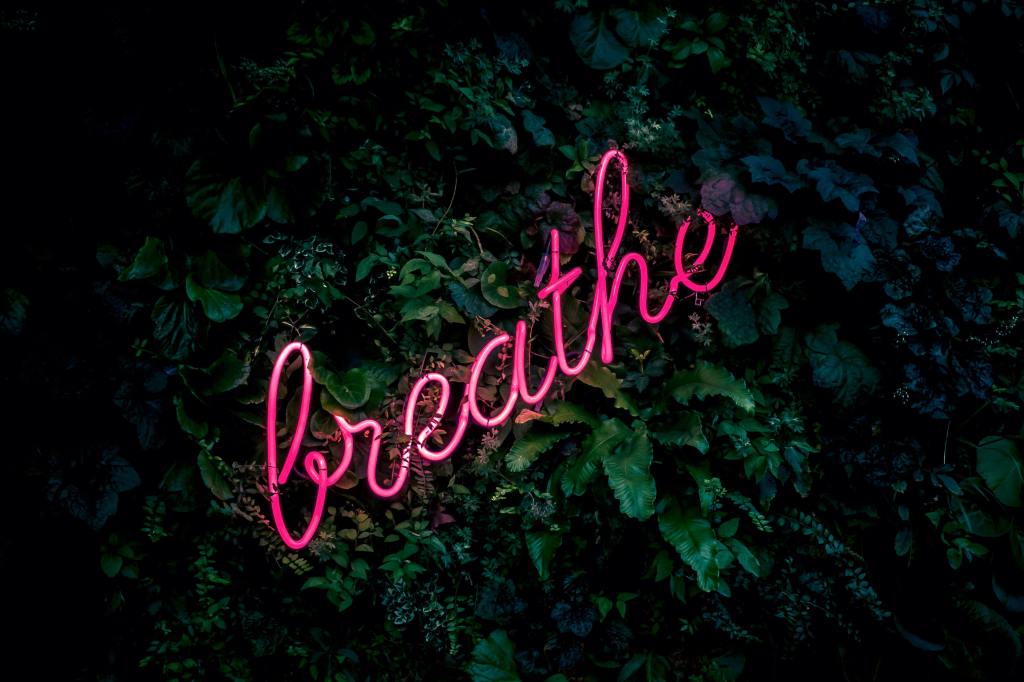I’ve been having a hard time putting into words how I feel about Kate Spade’s passing.
She was found dead in her Park Avenue apartment. Death by suicide.
All over the internet, people said they didn’t know she had mental illness.
I’m sure you had no idea she had depression. I had no idea this amazingly talented and creative woman suffered from depression. I know her brand story, who her husband was, how her business started, but I didn’t know she had depression.
Why is it any of my business or yours to know?
For some reason, it’s not okay to talk about the mind and the chemicals and hormones it releases and controls and the messages it relays, but it’s okay to talk about cancer or lupus or a kidney transplant.
Mental illness is not a character flaw, it’s an ILLNESS. Suicide is not a selfish act, or a sin—it’s dying from a disease of the mind, instead of the body.
In the time between Kate Spade’s death and me sitting down to write this post, another one of my heroes took their own life: Anthony Bourdain. Anthony was more vocal about his struggles with depression and drug use, but it still came as a complete shock to everyone that he ended his own life.
If someone were to die at the age of 55 or 61 after a lifelong battle with cancer, we’d all say they were a “fighter” or an “inspiration.”
But when someone dies after a lifelong battle with severe mental illness and drug addiction, we say it was a tragedy and tell everyone, “Please seek help, call this suicide hotline.”
Sorry, but that’s bullshit.
Anthony Bourdain sought help his entire life. He saw a therapist and spoke openly about it. He quit heroin and cocaine. He went to rehab. He did this for decades. But in the end, it wasn’t enough.
By the time a person has reached the point of having suicidal thoughts, their brain chemistry is so horribly unbalanced that they can’t think logically, and they just want it all to stop.
Whenever there is a suicide, we post messages saying, “Reach out if you need help. I’m here for you.”
It’s so important to be willing to help and to have compassion. It’s important to remind people that there is support out there.
But in some ways it’s not enough.
Depression, bipolar disorder, anxiety, and other mental illnesses feed your mind the wrong messages. Mental illness changes the way you think.
Mental illness tells you that you’re going to screw up. It tells you that you aren’t good at anything. It tells you to be afraid of things you know you shouldn’t be afraid of. It tells you that things won’t get better. It tells you that everyone is out to get you, that everyone is looking at you, that everyone is judging you. Constantly.
Anxiety, for example, causes a wide range of physical symptoms like headaches, nausea, heart palpitations, panic, shortness of breath, dizziness, muscle spasms. Anxiety also causes a very long list of sometimes debilitating symptoms: thought, cognitive, emotional, and mood-based (read more here).
Depression tricks you into feeling isolated. Alone, even in a crowded room. Even with people that know you and love you.
Depression tricks you into feeling weak. It tricks you into believing that you are failing because you can’t simply shake things off like others can. You look at others who appear to be managing their struggles so effortlessly and wonder why you are so incompetent and don’t even have enough energy to take shower. It makes you feel overwhelming tired; like a simple trip to the grocery store is akin to a full day at Disneyland.
Mental illness makes your mind wage war against you. It changes how you think and how you process information.
When you’re battling something like severe anxiety or depression, simply getting out of bed takes every amount of strength that you have—the thought of reaching out to someone for help feels really hard. It feels impossible. Calling someone? No. Calling a suicide hotline? Maybe not.
Everything is hard when you’re battling a mental illness. There are millions of reasons why, but I’ll start with judgment.
It’s deeply ingrained in our society and our lexicon. People judge those with mental illness. Sometimes it’s blatantly obvious but sometimes it’s latent aggressions like using terminology such as, “bitch be crazy“.
Yet would you judge someone with cancer? Heart disease? Immune disorders? A tumor?
Would you tell them to just “get over it?”
Would you tell someone with a broken leg to just “get outside and get some exercise”?
“Come on, just get over your cancer. Maybe if you don’t think about it, it’ll go away.”
Don’t you think someone suffering from mental ILLNESS would just think it away if they could?!
No wonder no one wants to speak up when they’re having a hard time.
No one wants to be “crazy”. No one wants to lock themselves in their house because they’re afraid to go outside. No one really wants to distance themselves from everyone they know. No one really wants to not wash their hair for weeks on end or talk to themselves in public or yell at something that isn’t there. But mental illness wants them to.
According to the National Institute of Mental Health, about 45 million Americans are suffering from a mental illness—and those are only the diagnosed cases.
The National Institute Of Mental Health (NIMH) breaks down mental illness into two categories: any mental illness and serious mental Illness. Any mental illness is defined as any mental, behavioral, or emotional disorder and can vary in impact, ranging from mild, moderate, and even severe. Serious mental illness is defined as a mental, behavioral, or emotional disorder resulting in serious functional impairment, which substantially interferes with or limits one or more major life activities.
It’s important to note that not everyone’s mental illness is the same. Just because one person acts a certain way with Bipolar Disorder, doesn’t mean that every person with a Bipolar diagnosis will act that way. Anxiety and depression present themselves in many different forms.
If you have been following along with me on Instagram or Instagram Stories or Facebook or my blog, you know I am very open about my own struggles with anxiety, PTSD, depression and fibromyalgia. Every single day is a fight.
A lot of people have told me that I could control it just by “being positive”, “shifting my mindset”, or my favorite, “have you tried essential oils?”.
First of all, no. There is a physical chemical imbalance in my brain. My brain is malfunctioning. The most common anxiety symptoms are those directly caused by the fight or flight system – the system in the brain that is responsible for keeping you safe from harm. Yeah, mine is broken. I can’t just “think positive” my way out of that. It’s as real as diabetes, cancer, or anything else that seems more “physical”.
Depression is an ILLNESS. It is not a condition that can be “cured” by being brushed off with a “try to be happy” or “you have so much to be happy about.”
Anxiety is an ILLNESS. It is not a condition that can be “cured” by being brushed off with a “just don’t be afraid of that” or “get over it” or “just don’t think about it”.
Until the stigma is removed from mental illness, those suffering from these illnesses will continue to hide their condition.
Until society truly, authentically accepts it as an illness, mental illness will continue to swallow people whole.
In some cases, people will self-medicate with drugs and alcohol. In some cases, people end up homeless. In some cases, people end up committing crimes they didn’t mean to commit. In some cases, people end up killing other people. In some cases, people end up dead.
I’ve been in and out of therapy for Persistent Depressive Disorder and General Anxiety Disorder since I was an adolescent. I thought everyone thought about killing themselves until I was 9. I was fortunate enough to have access to mental health care through my Dad’s work at UC Berkeley to be covered by Kaiser Permanente.
But then I got older, and health care in the US changed.
For a long time, as an adult, I didn’t know I needed help.
I’m sorry I flaked in our coffee date, again.
It’s not you, it’s my severe anxiety. I couldn’t leave my house today.
I was in a lot of pain, both mentally and physically. I was having panic attacks. I didn’t want to leave my house. Scared all the time (of nothing). Sleeping all the time. Unable to focus. Battling with episodes of dissociation, depersonalization, and derealization. Feeling overwhelmed even with the smallest tasks like laundry, washing my hair, or taking my dog on a walk. When my family realized what was going on with me, they encouraged me to call my doctor.
But it wasn’t that easy.
Major Depressive Disorder manifests itself in many forms: avoidance, no desire for social interaction, and isolation. Many days I don’t want to talk to anyone. When my husband gets home, I barely speak. When it’s really bad, I can’t pick up a phone to call anyone except my mom or my sister–and sometimes I can’t even do that.
I had the phone number on a post-it note, right on my laptop, staring at me in the face, but I still couldn’t bring myself to pick up the phone. I was terrified—I wanted to call but I just…. couldn’t. There was something stopping me; pulling me back from doing it. It took me a few weeks before I could break through my anxiety to call.
When I did finally call to ask my medical provider Kaiser Permanente in Washington for help, I cried on the phone telling Janet in the call center how miserable I’d been. I told her I hadn’t showered in days. I told her I’d been pulling out my hair. I told her I was exhausted all the time and couldn’t make it through the day without a nap. I told her I couldn’t focus and that I had stopped working. I told her couldn’t leave my house. I told her that I was having panic attacks both while I was awake and asleep. I told her I felt empty.
Janet asked if I had thoughts of killing myself.
Inside, I was screaming “Yes”, but the word “No” slid out of my mouth like a snake. I couldn’t tell a stranger that I had been having suicidal thoughts. I couldn’t say it. I didn’t know how to say it. I didn’t want to. I was ashamed. How did I get here?
A healthy brain doesn’t think about hurting itself; a sick brain does.
On the other end of the phone, Janet clicked a “No” button and told me it would be four weeks before the soonest appointment. Four weeks.
She apologized and said if I had urges to killing myself, I should call 911. Tears streamed down my face.
I waited four weeks to see a primary care doctor to get a referral for mental health. During my appointment, I had 15 minutes with a doctor I’d never met to confide in them that I couldn’t stand my reflection, couldn’t get out of bed in the morning, couldn’t focus, and didn’t want to leave my house.
How was I supposed to open up to someone I’ve never met about the deepest, darkest parts of me, when I don’t know how to assign words to the feelings I have? When I can’t see that my actions are clouded by a thick haze of gloom?
It would be six months from that first call before I got in with a LCSW, a licensed social worker, who I didn’t connect with. Six weeks for another appointment with another LCSW, who I also didn’t connect with. Without the help I needed, I started having more panic attacks.
I’m in treatment now for PTSD that went undiagnosed for many, many years. I’m working with a psychologist for talk therapy and a psychiatrist for medication to treat PTSD, Panic Disorder, Severe Anxiety Disorder and Persistent Depressive Disorder.
But you don’t just go to one doctor for mental illness and get better. There isn’t just one treatment and you’re better.
Mental illness affects everyone differently. In some people, it’s a mild case. But in some people it’s severe.
Some people are able to overcome mental illness with medicine, some with talk therapy (especially cognitive behavioral therapy), some use a multitude of treatments like yoga, meditation, coloring, acupuncture, etc. For some people, like myself, it’s a lifelong battle, full of dozens of tools to manage.
I try to see my own mental illness somewhat akin to cancer, in that it requires a lot of different kinds of treatment to someday get it into remission.
Every single day of my life will be a battle. Every. Single. Day. I’m making progress to manage my mental illness, but sometimes I get worse. It’s a journey. Mental health is something that everyone needs to be concerned with for their entire lives (just like physical health).
Mental illness is not just something you can ignore. Mental illness is as real as the flu. As real as diabetes. As real as CANCER.
You can’t see mental illness, and that’s why we NEED TO TALK ABOUT IT.
There are millions of people all over the world that have a mental illness. Those people, like myself, like Kate Spade, are often MASTERS at hiding their illnesses so we can “pass” as normal. Pass as happy. Pass as not deeply troubled by internal demons that claw at our backs.
Depression is a monster.
Kate Spade was known for her playful designs and cheeky humor. By any measure, she appeared bubbly and full of life. Maybe she was telling herself to “live colorfully” as she battled mental illness behind closed doors.
She lost her battle.
Anthony Bourdain was known for his amazing humility, writing, television shows, and candid honesty about everything from tripe to heroin addiction.
He lost his battle.
These two amazing souls are a unique juxtaposition of mental illness: one surrounded herself with color and brightness, embellished handbags with things like “live colorfully”; the other was open about his struggles, his addiction, and his own self-deprecating sense of honesty.
This is an important lesson in facades. Remember that many of us wear masks. Sometimes your strongest friend has the darkest secrets. Sometimes the person who laughs the loudest is in the most pain. You can pretend to be anything you want—especially online—but that doesn’t make the illness go away.
Suicide is the 10th leading cause of death in the United States, according to the American Foundation for Suicide Prevention.
You can’t see mental illness, and that’s why we NEED TO TALK ABOUT IT.
It may not be easy to relate to, but I hope this will help you understand why it’s not enough to simply say “ask for help” or “here’s the suicide hotline number”.
Caring counts. Don’t just wonder what’s going on with someone or rely solely on their social media posts to see how they’re doing, talk to them. Connect with them.
Whenever you see someone who needs help, give them support, don’t sit back and wait for them to ask.
Because odds are, they never will, and if you ask them if they need help, they’ll likely say no. Just do things for them.
Here are a few things you can do to help your friends or acquaintances that may be suffering:
- When you are on Facebook scrolling through your newsfeed and you see a post that could be a cry for attention, private message your friend and talk to them. Hell, just message your friends any time.
- When your friend begins shutting themselves away from life, drag them back into the light. Invite yourself over. Call to say hi. Send them a text (bonus points if it’s a cute animal). Tell them you’re thinking of them.
- If your co-worker seems to be barely making it through the day, do something kind that shows them you recognize their struggles. Like, sit with them at lunch or ask to go on a walk with them during a break.
- Invite yourself over for dinner and bring the food.
- Tell them you want to meet them for coffee and find a coffee shop near them, or bring them coffee. Often, people suffering from anxiety do not want to leave their homes or can only go to certain “safe” places that they feel comfortable at.
- Arrange for food to be delivered. Arrange to have their house to be cleaned. Help them with their laundry. Remember, even simple tasks are very difficult when battling depression.
- Have deep, meaningful conversations with your friends and loved ones. Check in with them regularly. Don’t just ask them how their day is. Keep talking to them. Talk about anything at all, even menial stuff. Try to make them laugh. Thank them for trusting you with their thoughts and words. Make them feel heard.
- Don’t let them feel that they are alone, adrift in a world that won’t miss them when they’re gone.
On almost daily basis, people thank me for being open in DMs and comments. I am so grateful for them. They make me feel like I kind of finally have a purpose.
But, so many of the those people message me say that they, too, suffer from anxiety or depression or fibromyalgia or another invisible illness.
They thank me for being brave to speak about my struggles with mental illness.
Let’s be clear, this is not easy to talk about, because I’m scared of being judged for it. I’m scared of people pitying me or feeling sorry for me (I really don’t want that). I’m scared of not getting clients because they’re worried about my ability to complete work.
But I got to thinking… if all of you out there start talking about your battle with mental illness too… would that help? If we shout about pain and talk more about mental health… maybe there won’t be so much of a stigma?
If we talk about mental health from early on, it’s just another thing we focus on in our health. Like, the dentist, or a yearly checkup.
How many people have to feel so deeply alone that they take their own lives before we start to wake up to the fact that we must do something different?
It almost has become so common, like school shootings, that we see headlines for a day or so, send out thoughts and prayers, and then we get back to our lives and nothing changes.
We need to support each other.
We need to be honest when we’re having a bad day and not feel ashamed about it.
We need to understand each other if we need to flake on a coffee date because of anxiety.
We need to share our stories and share what helped us get through it.
We need to fucking talk about.
We need more mental health support.
We need more funding for more education for social workers, psychologists, and mental health professionals.
We need to be able to pay them fair wages.
We need access to those mental health professionals.
It shouldn’t be a six month wait to get an appointment when you think you’re suffering from depression or having panic attacks or feel like you’re losing your mind.
We have to talk about this.
At home. At school. At the dinner table. On television. Everywhere.
There should be no stigma about mental health—just awareness, compassion, and treatment.
Rest easy, Kate Spade. Thank you for sharing your colorful vision with us and inspiring us.
Thank you, Anthony Bourdain. Thank you for sharing decades of your life with us. You truly were a blessing. Rest easy, Anthony Bourdain.
Rest easy, every person who has taken their own life.
For all of those who are staring into the abyss and want to give up, don’t. Keep fighting. Find something that does bring you joy. Go to therapy.
Stay alive. We need you.
If you need support right now, call the National Suicide Prevention Lifeline at 1-800-273-8255, the Trevor Project at 1-866-488-7386 or text “HOME” to 741-741. Head here for a list of crisis centers around the world.
Like what you read? Want more from me?
Wow, this post reached so many more people than I thought it would. If you’re looking to follow me and read more of my writing, please follow this blog and like my page on Facebook.
Image details:
Model: Me! | Photo Credit: Budy Pratama for Terralogical




Leave a comment